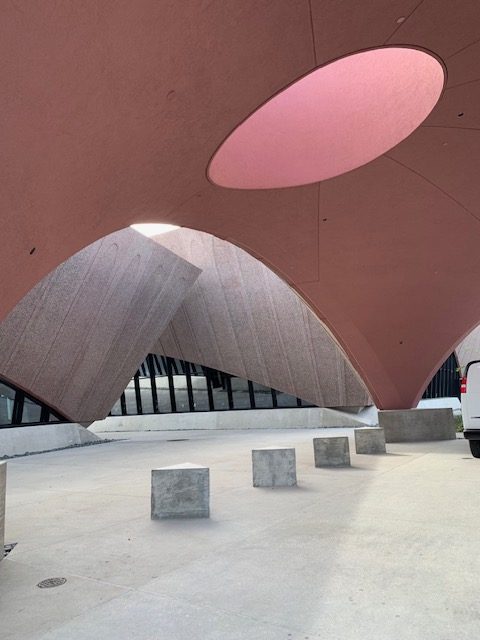
by Beth Kassab | Feb 15, 2024 | Library, News
Starting Feb. 25, Winter Park Library will open on Sundays
The new hours are part of Executive Director Melissa Schneider’s goals to expand access and services
Feb. 15, 2024
By Beth Kassab
Later this month the Winter Park Library will be open on Sundays for the first time since before the pandemic.
The new hours from noon to 6 p.m. starting on Feb. 25 are the result of increased investment in the library by the City of Winter Park through its Community Redevelopment Agency.
City Commissioners last year approved an additional $350,000 contribution to the library, which allowed Executive Director Melissa Schneider to fill an additional seven full-time equivalent positions.
The extra staff will make the Sunday hours possible along with expanded access to the library’s archives, technology and maker spaces, which were previously only available by appointment.
Schneider said there will be an emphasis on helping small businesses and entrepreneurs within the city’s CRA, which exists to help the area near downtown become more economically vibrant.
So far she said the bump in library users that resulted from the opening of the new building at the end of 2021 next to MLK Park and also within the CRA has held steady. A gala last weekend raised $200,000 for the nonprofit library.
“The first year we thought maybe this was an anomaly,” she said. “But so far we’re maintaining where we were in 2024. We’re anticipating this is going to be our biggest year yet.”
WinterParkVoiceEditor@gmail.com
To comment or read comments from others, click here →
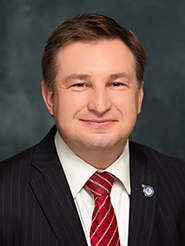
by Beth Kassab | Feb 15, 2024 | City Commission, News, Uncategorized
Commission to consider resident vote on gas leaf blower ban
Sen. Jason Brodeur signaled he would not try to preempt the ban if commissions let voters decide its fate next year
Feb. 14, 2024
By Beth Kassab
The noise over Winter Park’s ban on gas leaf blowers intensified Wednesday at a hastily called work session for the City Commission to decide how to respond to a threat by Sen. Jason Brodeur (pictured above) to take away control over the issue from local officials.
City Manager Randy Knight told commissioners he spoke with Brodeur and the senator would be willing to drop his plan to pass a state law to prohibit all cities and counties from banning the gas devices — but only if Winter Park met Brodeur’s demands:
- Commissioners must delay enforcing the ordinance to June 1, 2025 rather than Jan. 1, 2025 as they decided last month.
- Commissioners must also place a question on the March 2025 ballot so voters can decide whether the ban should be repealed.
Mayor Phil Anderson, Vice Mayor Sheila DeCiccio and Commissioner Kris Cruzada said they would be open to following those orders, but the commission did not reach a decision and opted to consider the matter again at the next meeting on Feb. 28.
DeCiccio, who is running for mayor in the March 19 election, was the swing vote as the necessary third commissioner to potentially pass the voter referendum. Commissioners Todd Weaver and Marty Sullivan said they were against it.
Knight suggested that agreeing to the voter referendum could be the only way to keep Brodeur from attempting to pass a preemption law this legislative session, which is more than half way over. A number of Florida cities such as Naples and Biscayne Bay have already enacted bans, but even those could be thrown out by Brodeur’s legislation.
Brodeur briefly introduced an amendment on Feb. 6 in Tallahassee to preempt cities from enacting such a ban and then immediately withdrew it.
Just two days later on Feb. 8, Knight sent a text message to Brodeur asking to have a discussion, according to text messages provided to the Voice through a public records request.
On Monday morning, Knight reached out to Brodeur again and let him know that the city scheduled a work session about leaf blowers for Wednesday and referred to the idea of a referendum as if it was already a done deal.
“I have briefed all commissioners on our discussion and I feel good about it,” Knight wrote. “We don’t take public comment at work sessions but of course will when the referendum ordinance comes forward.”
“Outstanding,” Brodeur responded. “Much appreciated.”
Brodeur got involved in the issue just weeks ago after complaints from constituents escalated after the city passed a rebate for homeowners who purchased electric leaf blowers.
The ban has been around since 2022, but commissioners opted to delay its start until July of this year.
Landscape companies say the electric devices are too expensive, don’t have enough power and will bring an increased burden on their small businesses and individual workers.
Anderson said Wednesday that he recalls the survey the city conducted more than two years ago before passing the ban came back split about 50-50 in terms of support and opposition.
“I don’t know that we have 100% of the answer what our constituents want and I don’t know that Sen. Brodeur has 100% of the answer so it’s kind of an interesting idea to let the citizens weigh in on it,” he said. “It’s better than Survey Monkey.”
Commissioner Marty Sullivan expressed more skepticism.
“Even if the majority said no,” to a leaf blower ban, Sullivan said, “I think it’s incumbent on us to look to the future and do what’s right for the future. I believe this leaf blower ban is a great step forward for our city. I am hesitant about this compromise put forth by our senator.”
Commissioner Todd Weaver pointed out that the original vote for the ban was unanimous and that commissioners are elected to represent the interests of the city, rather than manage “threats” and edicts handed down from Tallahassee. He said he would rather see the question make it to the ballot because citizens gather enough signatures to place it there — an estimated 1,400 or so — rather than by a vote of the commission.
DeCiccio also said she support a citizen-led effort to put the question on the ballot next year and asked Knight to approach Brodeur to see if he would also be amenable to that option.
Knight will bring another report back to the commission on Feb. 28 when they will also take a vote on whether to allow voters the chance to repeal the ordinance next year.
The legislative session is scheduled to end the following week on March 8, which still leave Brodeur nine days to slip the preemption language into a bill if he doesn’t like the results of the next city meeting.
In recent years, Florida legislators have taken control away from municipal and county elected officials on everything from setting renewable energy standards, gun ranges, tenants’ rights, affordable housing projects and even the books on the shelves at public schools.
Anderson, who met with landscape company owners last month to hear their concerns and called a special meeting to potentially change the ordinance, is pushing the city to provide a directory of companies that have already converted to electric equipment so residents can make more informed decisions about who they hire.
“Whether we’re preempted or not, the city believes this is the right thing to do,” he said, noting he wants more resources and education available.
DeCiccio asked how bans are playing out in other cities that have enacted them for the same reasons — to reduce nuisance noise and pollution.
“They’ve all stuck with it,” Knight said. “They haven’t repealed it. They haven’t expressed that it’s been much of a challenge for them.”
WinterParkVoiceEditor@gmail.com
To comment or read comments from others, click here →
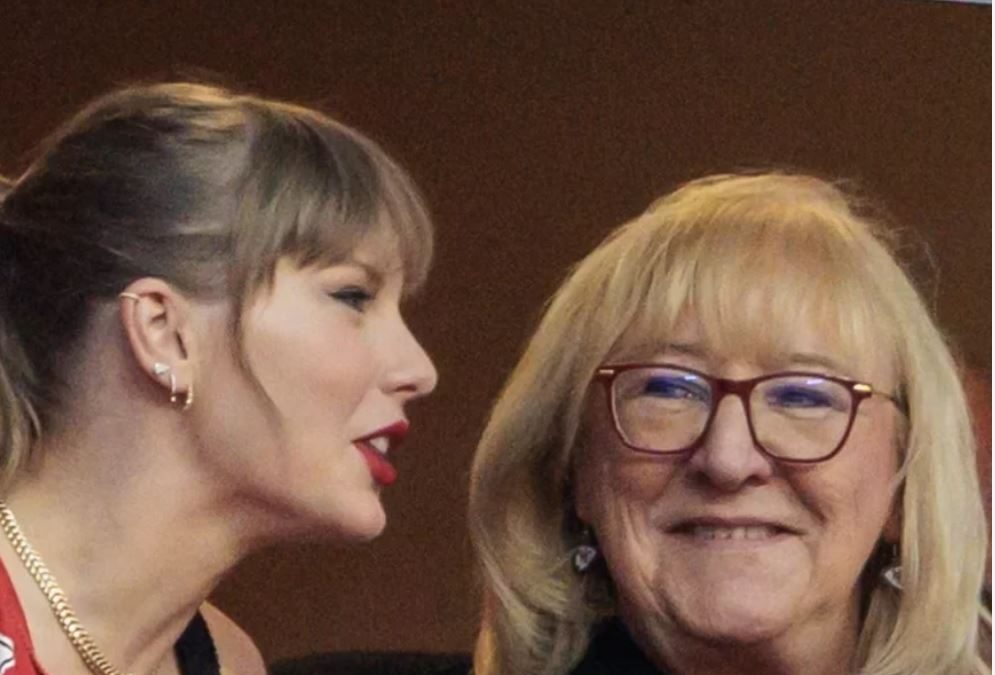
by Beth Kassab | Feb 10, 2024 | City Commission, News, Orange Avenue Overlay, Uncategorized, Zoning and Development
News & Notes: What's happening with Rollins apartments and more
Plus Super Bowl Sunday and the latest on the McCraney office tower
Feb. 11, 2024
By Beth Kassab
First, it’s Super Bowl Sunday and we all expect Winter Park-adjacent resident Donna Kelce (she lives in Baldwin Park) will be in attendance to cheer on Taylor Swift’s boyfriend (also known as her son, the Kansas City Chief’s Travis Kelce).
Could it be just a coincidence that only months after Donna Kelce posted a big shout out to Winter Park and the city’s famous boat tour that Swift announced there will be a song titled “Florida!!!” on her new album “The Tortured Poets Department” set to release in April?
Yes. It is definitely a coincidence. The song is most certainly not about that. But a city can dream, right?
On to a look ahead for the week:
Rollins proposal for faculty apartments
For those looking to speak for or against the plan by Rollins College to build faculty housing, you’ll have to wait a few extra weeks. The proposal was on Wednesday’s agenda, but has been postponed at the request of the college until Feb. 28.
At the last meeting, Rollins reduced the number of units it plans to build from 48 to 39 and the city postponed a decision on the matter that residents have complained won’t fit in with the surrounding area along New England Avenue.
McCraney Property next to Seven Oaks Park
After an initially chilly reception, members of the Planning & Zoning Board unanimously approved a proposal for a three-story, 29,500-square-foot office tower at 1100 Orange Avenue next to where Seven Oaks Park is underway.
Now the City Commission is set to consider the project on Wednesday. The Orange Avenue Overlay board approved the concept last month. 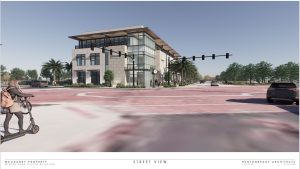
Steve McCraney, who is planning to building the space for his development company’s corporate headquarters, made changes to the original plans and is now offering right-of-way to the city that could be used in the future for a traffic roundabout on Orange Avenue.
“In order for a roundabout to actually be realized at this corner, there will be a much larger and timely community discussion, but this trade-off ensures that the City is not missing an opportunity for the roundabout,” according to a staff memorandum on the project. “Furthermore, the immediate effect of this right-of-way dedication, is a much larger setback than what was previously proposed, which helps reduce the impact of this three-story building at this corner.”
WinterParkVoiceEditor@gmail.com
To comment or read comments from others, click here →
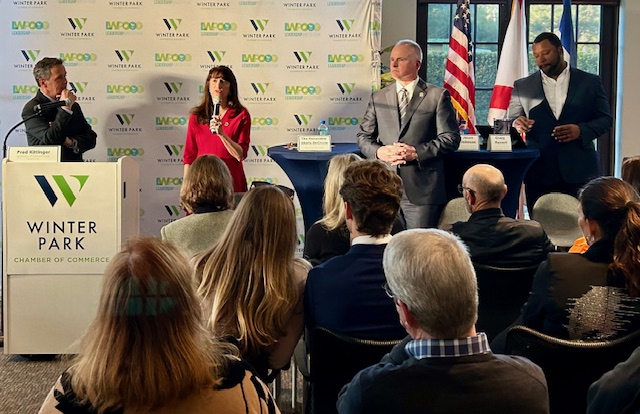
by Beth Kassab | Feb 8, 2024 | City Commission, Election, News, Uncategorized
Candidates offer views on parking and development at Chamber forum
Two candidates failed to show (again) to face voters
Feb. 7, 2024
By Beth Kassab
Mayoral candidate Sheila DeCiccio and Commission Seat 2 candidates Jason Johnson and Craig Russell met Wednesday afternoon at the Winter Park Chamber of Commerce to answer questions that largely centered on future development. (You can watch a recording of the debate here.)
Michael Cameron, a candidate for mayor, and Stockton Reeves, a candidate for Seat 2, declined to attend. Both also failed to show up for public forums for their races at the Winter Park Library.
Reeves told the Voice this week he does plan to attend forums at the Mayflower and Westminster senior residential complexes, but those are not open to the public. Turnout among senior voters is reliably strong and considered crucial in Winter Park elections.
The Chamber forum offered an opportunity for Johnson and Russell, two first-time candidates for the seat vacated by DeCiccio because she is running for mayor, to draw some clear distinctions about what they would bring to the office.
Topics that highlighted those differences included the Orange Avenue Overlay, a special zoning district that was put into place by a previous commission and overturned in 2020 after DeCiccio was elected. The district allowed for taller and denser development along Orange Avenue roughly between Rollins College and U.S. 17-92.
The effort to overturn the OAO became the subject of a contentious lawsuit brought against the city by major property owners Mary Demetree and the Holler Family. The city prevailed in the lawsuit last year.
Forum moderator Fred Kittinger asked the candidates if they had any appetite to revisit the original provisions to help encourage investment along the corridor.
Russell, a teacher and coach at Winter Park High School, was the only candidate who said yes and the only candidate on Thursday whom the Chamber announced it would endorse this year through its political action committee known as Winter Park PAC.
He noted a lot of time and taxpayer money was spent on the original overlay and then a new commission said, “never mind.”
“I’m not OK with that,” Russell said, calling it “careless” to not at least take another look at a “great project.”
Johnson, though, emphatically stated he was not in favor of returning to the original OAO and wondered aloud if the large property owners along the strip were waiting for the makeup of the City Commission to change before moving ahead with redevelopment plans.
“I’m not sure I’m going to be their guy if that’s what they want,” he said.
DeCiccio, who was instrumental in overturning the OAO, said that without that decision Seven Oaks Park — the city’s newest open space under construction at Orange and Denning — would instead be a new tower and pointed out that badly needed road alignment and drainage projects could not have gone forward as they are today. She said she is open to tweaks in zoning along the corridor, but that the vast majority of residents did not want the kind of development the original OAO would have allowed.
Another question that showcased differences in the candidates related to parking. Candidates were asked how they might change the city’s rules about how many parking spaces developers must provide for different types of development — a code some chamber members consider antiquated and wasteful because they say too much land is set aside for parking that goes unused.
Again, only Russell appeared open to the types of changes the Chamber has advocated for, noting that he doesn’t mind “parking and then walking to where I need to go.” He didn’t offer specifics, but suggested the city look to other municipalities and experts for solutions.
Johnson said he would be OK with making some changes to the code, but he noted the challenges residents face finding parking along Park Avenue and other busy areas.
“I’m open to making those tweaks, but I’m not in favor of eviscerating the parking code as it stands,” he said.
DeCiccio added that the city is building parking along with Seven Oaks Park to help merchants on that end of Orange Avenue where parking is scarce.
The moderator also asked candidates what they would do to “generate charm” in the business areas such as Fairbanks Avenue and Lee Road.
DeCiccio pointed out that those roads are controlled by the state and said working with business owners is key to a solution.
Johnson suggested additional trees, wider sidewalks and offering incentives for businesses to redevelop their properties would be part of the answer.
For his part, Russell said, “I just have a problem with the word ‘charm.’ “I’m charming,” he joked. “This city is rich with history and tradition and we need to preserve that.”
Johnson used his closing statement to rebut that sentiment.
“Lots of people I’ve been talking to have asked me what’s the difference between you two?” he said referring to himself and Russell. “Craig, I appreciate anybody who puts his name on a ballot. I certainly appreciate Craig for showing up here tonight. But you heard one of the contrasts between us. Craig doesn’t like the word charm. I embrace it. It is my north star for running in this election. I’m not a politician, I’m just trying to do some public service for a city I love. The whole reason I’m running is to preserve the charm and village feel that we all love about Winter Park.”
WinterParkVoiceEditor@gmail.com
Parking, Orange Avenue Overlay, CRA
Johnson on charm
WinterParkVoiceEditor@gmail.com
To comment or read comments from others, click here →

by Beth Kassab | Feb 8, 2024 | City Commission, Election, News, Uncategorized
Sen. Jason Brodeur files -- then immediately withdraws -- preemption on leaf blowers
The amendment would prevent local governments from banning the gas-powered devices
Feb. 6, 2024
By Beth Kassab
Sen. Jason Brodeur launched a stern but fleeting attempt to prohibit cities like Winter Park from banning gas-powered leaf blowers.
In a short exchange during a meeting of the Senate Committee on Community Affairs on Tuesday, Brodeur said Winter Park was the impetus behind the idea, but immediately withdrew the amendment he filed on an unrelated bill. He warned he would “keep the language” and potentially make a harder push to preempt local governments from mandating electric leaf blowers another time.
“I intend to keep working with the city of Winter Park to show them if they keep doing nonsense like this to hurt their small businesses it’s going to be a lot worse later,” he said.
Brodeur, the Republican who represents Winter Park and Maitland along with Seminole County, called the city’s ban on gas-powered leaf blowers “preposterous” and “akin to mandating that you screen in pools.”
(In fact, Florida statutes do require new pools be enclosed, fenced or meet other safety measures to pass a final inspection.)
State legislators have responded to local officials in recent years with an increasing number of preemptions — measures that take control away from from elected city and county leaders.
The idea of “local control” was once the mantra of many Florida Republicans. But that has evolved into cheerleading a heavier-handed state government, particularly when the topics resonate as the ideological battles or culture wars popularized by Gov. Ron DeSantis.
The Florida Legislature has removed the ability of local governments or school boards to have a say in matters such as setting renewable energy standards, gun ranges, tenants’ rights, affordable housing projects and the books on the shelves at public schools.
Vice Mayor Sheila DeCiccio, who is running for mayor, said during a forum at the Winter Park Library on Thursday that she understood the reason Brodeur pulled the amendment is because of the number of cities in South Florida who “complained bitterly” that they are very satisfied with their bans on gas leaf blowers.
She noted that Winter Park adopted the gas leaf blower ban in 2022, joining cities such as Naples and Bicayne Bay, because of noise complaints during the pandemic. She said city officials believed at the time that waiting 30 months — or until July 1 of this year — to enact the ban was enough time for landscape companies to transition to new equipment.
In addition to regulating noise, the ban takes an incremental but significant step away from the emission-producing devices.
“This decision reflects the city’s dedication to prioritizing environmentally conscious practices as well as its commitment to sustainability, reducing noise and air pollution, and protecting the water quality of its lakes,” according to a recent city press release. “Gas-powered leaf blowers are known for their noise and significant environmental impact, emitting harmful pollutants into the atmosphere. These pollutants contribute to air quality degradation and pose health risks to both residents and the environment.”
In January, commissioners approved a $50 utility bill rebate for any resident who purchased an electric leaf blower. That move sparked debate over the ban, originally passed in 2022 but with a 30-month delay before it begins in July.
Landscape companies complained about the cost of high-grade electric models, the duration of the batteries and the weight of the equipment on workers’ backs.
Mayor Phil Anderson proposed an additional six-month delay of the ban, but commissioners voted 3-2 in a special meeting called on the topic to keep the July 1 start date.
A city web page is now devoted to the reasoning behind the ban as well as this comparison of gas-powered vs. electric leaf blowers.
The city’s comparison shows that the upfront cost of the electric devices and their batteries are far higher than the gas-powered models. But the cost of operating each model per hour is lower for the electric blowers when the cost of electricity vs. gasoline is factored in.
The city says its Parks & Recreation Department has replaced 98% of its leaf blowers with electric models and 100% of its trimmers. It’s also invested in two zero-turn lawn mowers and three utility carts.
WinterParkVoiceEditor@gmail.com
To comment or read comments from others, click here →
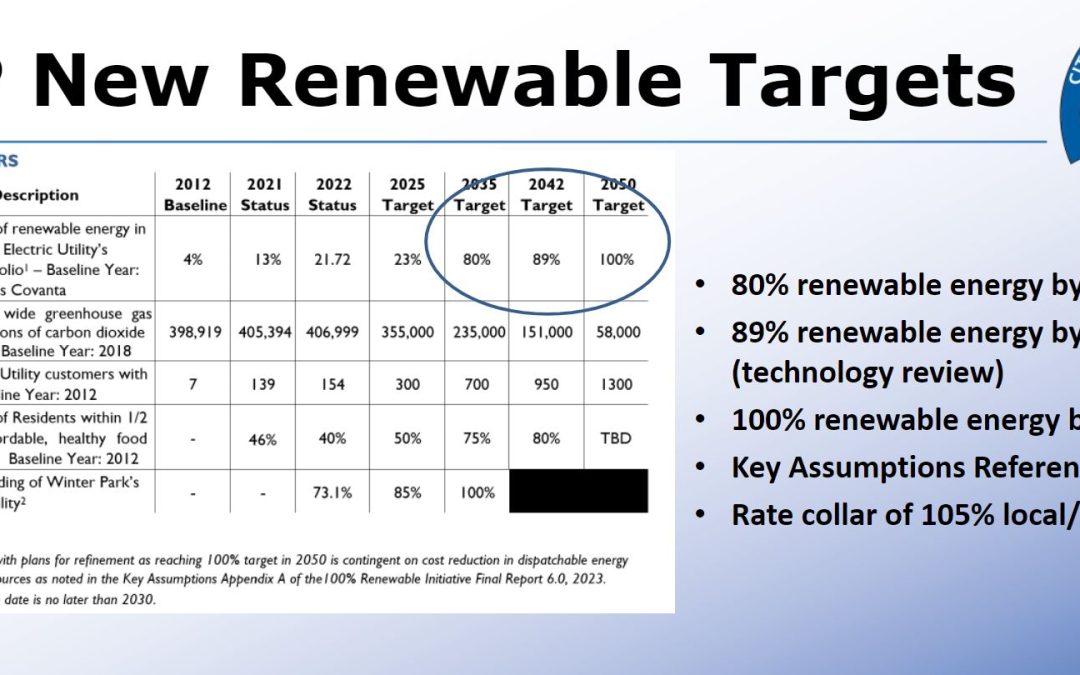
by Beth Kassab | Feb 2, 2024 | City Commission, News
City aims for 80% renewable electricity by 2035
The plan calls for the city to purchase 100% of its electricity from renewable sources by 2050
Feb. 2, 2024
By Beth Kassab
City Commissioners recently signed off on a plan to steadily increase the supply of renewable energy it purchases to light homes and businesses until it ultimately reaches 100% in about 25 years.
Winter Park is one of a dwindling number of cities that owns its electric utility, which means it has the power to choose where to purchase its energy.
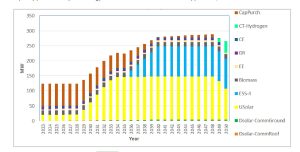
This chart shows the increase in renewable energy sources for Winter Park over the next 25 years.
Mayor Phil Anderson said the plan allows Winter Park to purchase more solar energy without increasing costs for utility customers. That’s because the cost of undergrounding powerlines in the city is already built into electric rates and as that project ends by 2030, the idea is to use that portion of the budget for more renewables.
“I came from being a skeptic to appreciating that we have an amazingly run electric utility and I’m looking at it and saying, ‘Yeah, we can do this,'” Anderson said during the meeting. “This is one of the biggest decisions that the city gets to make.”
Today natural gas makes up the bulk of the city’s power supply, which is common across Florida utilities. But the city is hoping to move away from fossil fuels into more solar and, eventually hydrogen combustion turbines. 
The hydrogen option is expensive today, but the city is banking on a general principal of new technology — a decrease in cost over time.
The plan, which commissioners approved last month, calls for 80% renewable energy by 2035 with an increase to 89% by 2042. If the forecast holds, the supply will reach 100% renewables by 2050.
During the debate over electric vs. gas-powered leaf blowers at a special commission meeting last week, some resident accused the city of focusing on the singular devices without committing to a larger effort toward renewable energy.
Commissioner Todd Weaver, who is one of the leading environmental advocates on the board, noted the new push toward rewewables.
“Over the last seven years some of us up here, even before we were elected, considered a sustainability action plan,” he said.
WinterParkVoiceEditor@gmail.com
To comment or read comments from others, click here →










Recent Comments